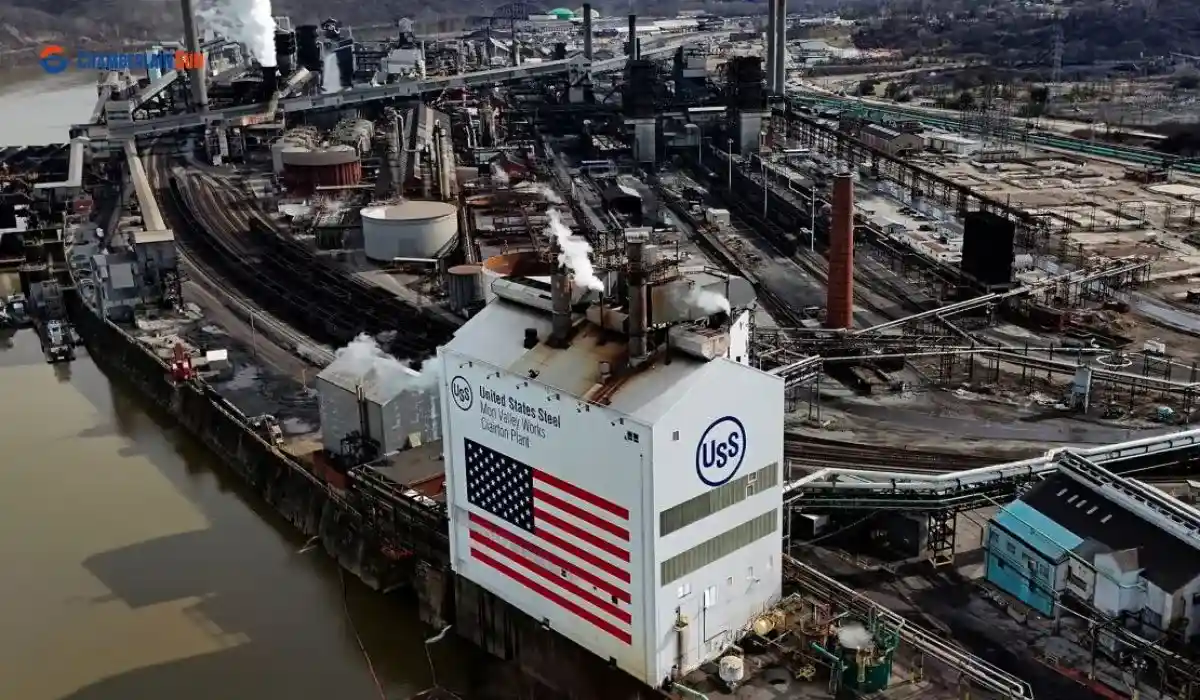President Biden is gearing up to intervene in a significant corporate merger involving Japan’s Nippon Steel and U.S. Steel, a move that could have far-reaching implications for U.S.-Japan relations and national security policies. The proposed $14 billion acquisition has sparked intense debate within political, business, and labor circles, highlighting concerns over foreign control of critical American industries.
Key Points To Know
- Deal Overview: President Biden is preparing to block a $14 billion acquisition of U.S. Steel by Japan’s Nippon Steel on national security grounds.
- CFIUS Scrutiny: The Committee on Foreign Investment in the United States (CFIUS) has been scrutinizing the deal for months, assessing its potential risks to U.S. national security.
- National Security Concerns: The U.S. government and lawmakers are concerned that foreign control of a critical industry like steel could pose security risks, especially in defense and infrastructure.
- Political Implications: The decision comes amid election-year politics, with labor officials, lawmakers, and business leaders weighing in. Blocking the deal may impact jobs and the U.S. economy.
- U.S.-Japan Relations: Blocking the acquisition could strain U.S.-Japan relations at a time when the U.S. is working to strengthen its alliances in East Asia to counter China’s growing influence.
- Strategic Considerations: Biden’s move reflects a broader strategy to protect key industries from foreign influence while balancing national security and economic globalization.
- Public Reaction: Critics worry about the economic impact of blocking foreign investments, while proponents argue for safeguarding domestic manufacturing and jobs.
- White House Position: The White House has stated that CFIUS has not yet transmitted its recommendation to the president, but a decision is expected soon.
Background And Context

The potential acquisition by Nippon Steel has not escaped the scrutiny of the Committee on Foreign Investment in the United States (CFIUS), a governmental body tasked with evaluating the national security implications of foreign investments in U.S. companies. Over recent months, CFIUS has meticulously examined the deal amid fears that handing over control of U.S. Steel, a vital asset in the country’s industrial infrastructure, could pose significant risks.
Political and Economic Ramifications
The decision by President Biden to block the merger underscores the delicate balance between economic interests and national security imperatives. With the United States actively seeking to strengthen alliances in East Asia, particularly with Japan, the timing of such a decision could strain diplomatic relations. Against the backdrop of China’s expanding influence in the region, maintaining robust ties with Japan has been a strategic priority for the Biden administration.
The Role Of CFIUS
CFIUS’s role in this process has been pivotal. As the primary watchdog for potential foreign acquisitions, its mandate includes assessing whether such transactions could compromise U.S. national security interests. In the case of the Nippon Steel-U.S. Steel merger, CFIUS has been engaged in extensive deliberations, weighing input from various stakeholders, including lawmakers, industry leaders, and labor representatives.
Public And Stakeholder Reactions
The prospect of a Japanese firm gaining control over a cornerstone of American industry has sparked impassioned debates. Proponents of the merger argue that international investments can bolster competitiveness and technological advancement. However, critics, including some members of Congress and labor unions, have voiced concerns about potential job losses, intellectual property risks, and the broader implications for domestic manufacturing capabilities.
Strategic Considerations
President Biden’s potential decision to block the acquisition aligns with broader strategic considerations aimed at safeguarding critical industries from foreign influence. This move reflects a cautious approach to economic globalization, particularly in sectors deemed vital to national defense and infrastructure. The administration’s stance underscores its commitment to balancing economic openness with stringent safeguards against perceived security threats.
Implications For U.S.-Japan Relations
The fallout from a blocked merger could strain bilateral relations between the United States and Japan. Despite being close allies, economic issues have occasionally tested the strength of this partnership. Japan, a major investor in the U.S. economy, may view such a decision as a setback, potentially complicating ongoing efforts to deepen economic cooperation amid geopolitical challenges posed by China.
Path Forward
As the process moves forward, all eyes are on CFIUS as it prepares to transmit its recommendation to President Biden. The White House remains poised to make a definitive decision on the fate of the Nippon Steel-U.S. Steel deal, signaling a pivotal moment in U.S. economic policy and international relations.
The impending decision by President Biden to block the proposed acquisition of U.S. Steel by Nippon Steel highlights the complex interplay between economic globalization and national security imperatives. In a globalized economy where strategic industries are increasingly interconnected, such decisions carry profound implications not only for domestic economic interests but also for international diplomacy. As stakeholders await the administration’s final verdict, the outcome of this high-stakes merger review will undoubtedly shape future discussions on foreign investments in critical U.S. assets.
In summary, while economic considerations favoring international investment are paramount, safeguarding national security remains a cornerstone of U.S. policy—a delicate balance that the Biden administration must navigate with careful consideration of both domestic and international ramifications.

